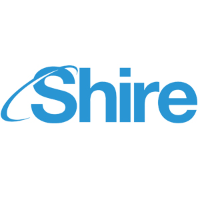Shire plc (LON: SHP, NASDAQ: SHPG), the leading global biotechnology company focused on rare diseases, announced today that additional data from the Phase 3 HELP (Hereditary Angioedema Long-term Prophylaxis) Study™, evaluating the efficacy and safety of subcutaneously administered lanadelumab in HAE, will be presented at the American College of Allergy, Asthma & Immunology (ACAAI) 2018 Annual Scientific Meeting. HAE is a rare, genetic and potentially life-threatening disorder that can result in recurrent attacks of oedema (swelling) in various parts of the body.
Data showed that patients treated with lanadelumab 300 mg every two weeks experienced significantly fewer HAE attacks, were less likely to have moderate or severe attacks or use rescue medication (primary and secondary endpoints), and were more likely to be HAE attack-free than those treated with placebo. These results were noted during the entire 26-week treatment period and, according to a post hoc sensitivity analysis, were greatest for patients during the 16-week steady state period (days 70-182).
Andreas Busch, Ph.D., Executive Vice President, Head of Research and Development at Shire said, “For those living with this chronic and unpredictable disease, it is important that they can reduce the frequency of their HAE attacks. Additional analysis of the HELP Study continues to support the use of lanadelumab as a preventive subcutaneous treatment option for HAE in appropriate patients 12 years of age and older.”
Interim results from the HELP Study open-label extension found treatment with lanadelumab was generally well-tolerated and consistent with the previously observed safety profile. At the time of interim analysis, patients had been exposed to lanadelumab for a mean (SD) of 8.21 (2.17) months and continued to experience a reduction in HAE attacks.
“The data we have seen from the HELP open-label extension are very promising and we look forward to receiving the final results,” said Dr. Busch.
The full list of HELP and HELP open-label extension study abstracts being presented are as follows:
Lanadelumab 300mg Every 2 Weeks Effectively Prevented Hereditary Angioedema Attacks in the HELP Study
Oral Abstract #A152
Sunday 18 November; 1:00 pm
Lanadelumab Reduces HAE Attack Rate: Interim Findings from the HELP Open-Label Extension Study
Abstract #P168
Sunday 18 November; 12:10 pm
Lanadelumab Exposure During Steady State: Achievement of Effective Concentrations in Patients in the HELP Study
Abstract #P170
Sunday 18 November; 12:30 pm
Lanadelumab Safety and Immunogenicity: Results from the Phase 3 HELP Study
Abstract #P166
Sunday 18 November; 09:40 am
Lanadelumab Efficacy After Switching from Placebo: Results from the HELP and HELP Open-Label Extension Studies
Abstract #P171
Sunday 18 November; 12:40 pm
Subcutaneous Self-Administration of Lanadelumab for Prophylactic Treatment in Patients with Hereditary Angioedema (HAE)
Abstract #P352
Saturday 17 November; 11:40 am
About the HELP Study™
The HELP Study™ was a multicentre, randomised, double-blind, placebo-controlled parallel group trial that evaluated the efficacy and safety of subcutaneously administered lanadelumab versus placebo over 26 weeks in 125 patients 12 years of age or older with HAE.
The primary endpoint of the HELP Study™ was the number of investigator-confirmed HAE attacks over the entire 26-week study duration. Lanadelumab demonstrated that subcutaneous injections every two or four weeks reduced the mean monthly number of attacks across all three lanadelumab treatment arms studied: 300 mg every two weeks, 300 mg every four weeks, and 150 mg of lanadelumab every four weeks.
No serious Treatment Emerging Adverse Events (TEAEs) or deaths were reported. The most common TEAE was HAE attack. The most commonly reported adverse events, excluding events related to HAE attacks, were injection site pain (42.9%), followed by upper respiratory infection (23.8%), headache (20.2%) and injection site erythema (9.5%). The majority of TEAEs were mild to moderate in severity. TEAEs resulted in discontinuation for 1 patient from the 300 mg every four weeks lanadelumab arm (ALT/AST elevation) and 2 from the placebo arm (tension headache, HAE attack).
About the HELP Study™ Extension
The long-term safety and efficacy of lanadelumab for the prevention of HAE attacks continues to be evaluated in a 132-week open-label extension study.
In the extension study, 212 adolescent and adult patients received at least one dose of lanadelumab. Of these, 109 patients are rollover participants from the HELP Study™ and 103 are new (non-rollover) participants who had a confirmed diagnosis of HAE and a historical baseline attack rate of >1 attack per 12 weeks.
About Lanadelumab
Lanadelumab is a fully human monoclonal antibody that specifically binds and decreases plasma kallikrein activity. Lanadelumab is produced in Chinese Hamster Ovary (CHO) cells by recombinant DNA technology. Lanadelumab is formulated for subcutaneous administration and has a half-life of approximately two weeks in patients with HAE.
Lanadelumab was approved under the brand name TAKHZYRO™ in the U.S. on 23 August 2018 and Canada on 19 September 2018 to prevent attacks of HAE in patients 12 and older, and additional regulatory submissions are ongoing worldwide. For full U.S. Prescribing Information, including the approved indication and important safety information, please visit https://www.shirecontent.com/PI/PDFs/TAKHZYRO_USA_ENG.pdf. For full Canada Prescribing Information within Canadian Product Monograph, please visit https://www.shirecanada.com/-/media/shire/shireglobal/shirecanada/pdffiles/product%20information/takhzyro-pm-en.pdf.
About Hereditary Angioedema
HAE is a rare, genetic disorder estimated to affect about 1 in 10,000 to 1 in 50,000 people worldwide. The condition results in recurring attacks of oedema (swelling) in various parts of the body that can be debilitating and painful. Laryngeal attacks that obstruct the airways are potentially life-threatening due to the risk of asphyxiation. Aside from the burden of the disease itself, patients can suffer anxiety, fatigue and depression between attacks.
Shire’s Commitment to Hereditary Angioedema
Shire is a dedicated, long-term partner to the HAE community with nearly a decade of experience supporting patients. We believe people living with HAE deserve a right-fit approach to treatment and are committed to serial innovation. Our existing portfolio of products includes a number of therapy options to help meet the needs of those living with the disease. Beyond our focus on developing novel treatments, we provide specialised services and support offerings tailored to the HAE community.




































